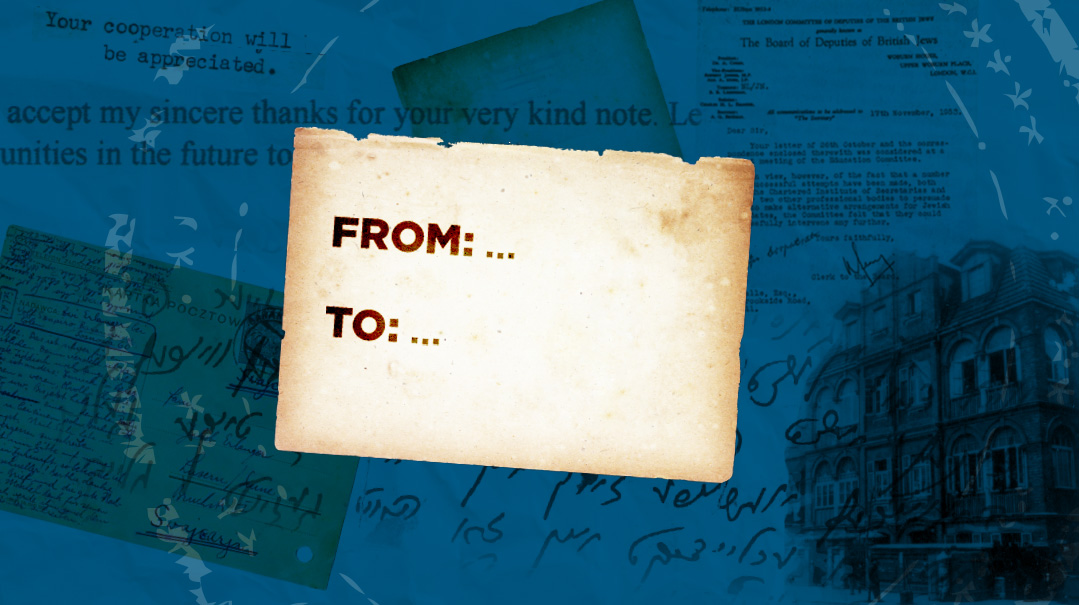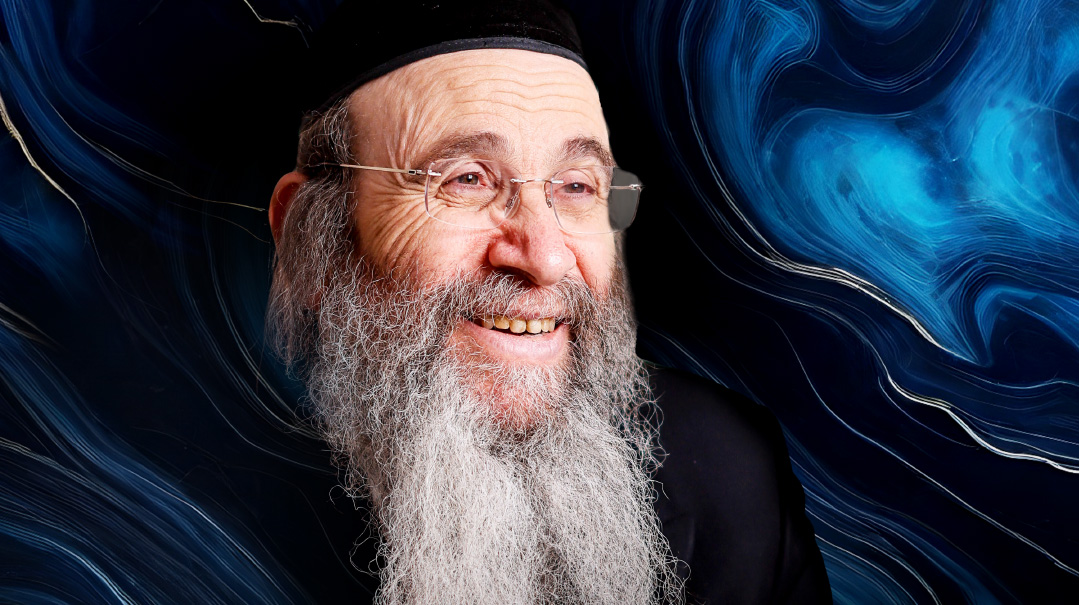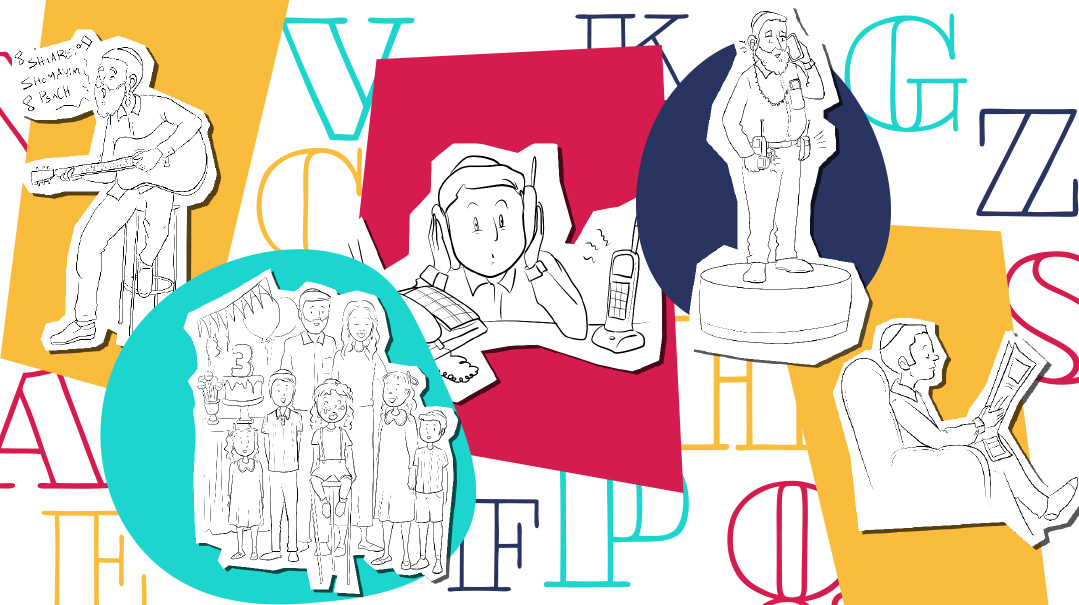Special Children Make Special Parents
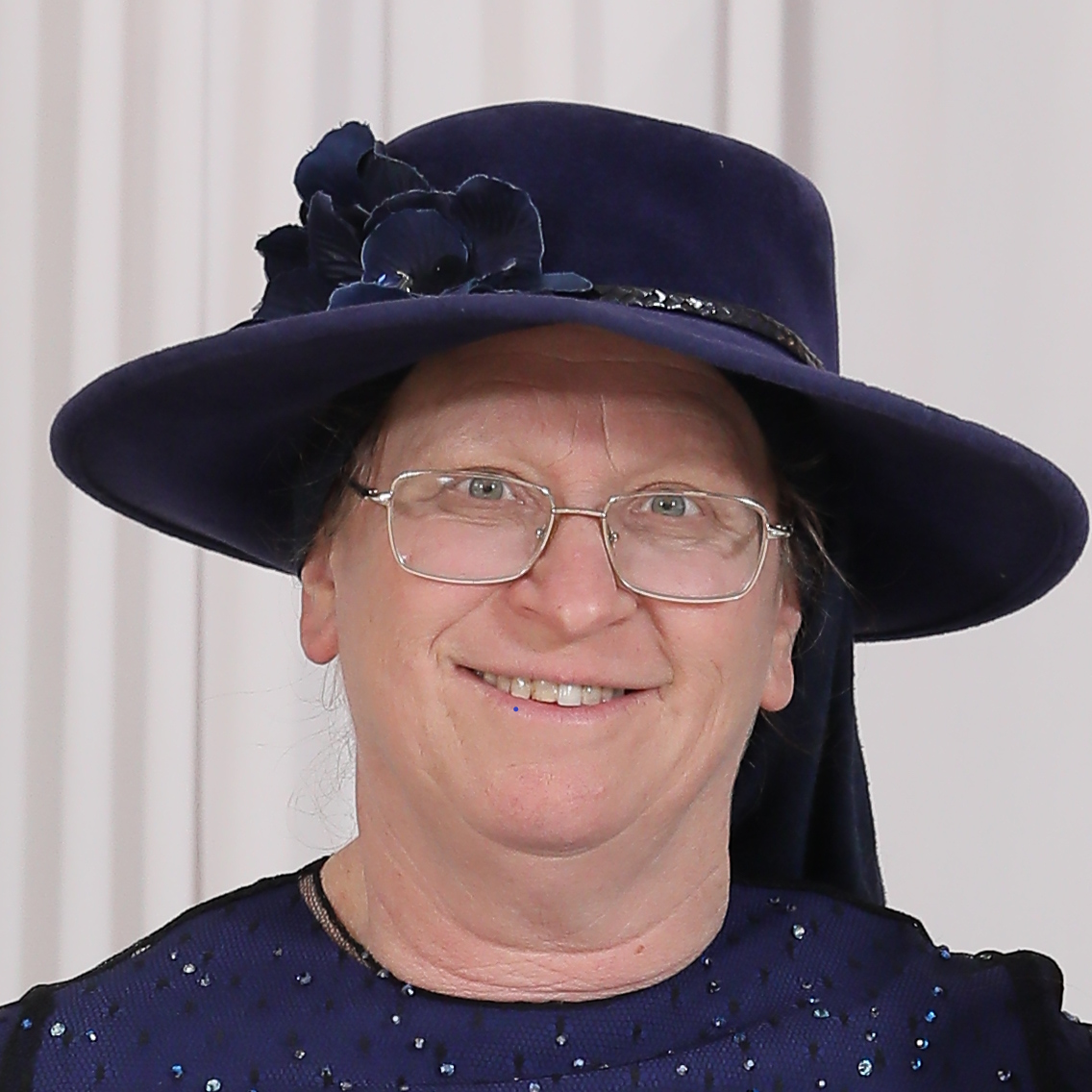
When a child is born with special needs, his parents have to adjust to a future unlike the one they’d pictured and stretch in ways they never envisioned
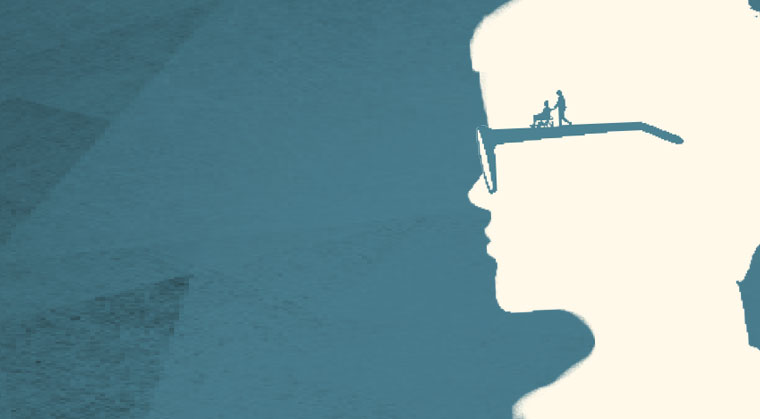
"O
ur twins were beautiful babies. We watched in wonder as our daughter and son grew: sitting up at the same time, learning to stand at more or less the same time, even beginning to walk and climb stairs together. Then, in the second year, something changed and our little boy stopped growing,” remembers Bradley Artson. Their once thriving son, Jacob, began compulsively repeating meaningless motions, endlessly plucking leaves or throwing pebbles for hours.
“It was like he was pulling away, somehow sliding into some other world, behind some wall that we couldn’t penetrate,” says Bradley. “The horror was so vast that we willingly agreed with the popular pabulum that people offered us: We shouldn’t be pressuring our son to be like our daughter. We need to let him grow to be who he is. We shouldn’t label the boy. We repeated these statements to ourselves until we couldn’t honestly say them any longer. Until the reality was so pressing that it shredded our denial.”
Although the Artsons recognized there was something alarming about Jacob’s behavior, they were still stunned by the doctor’s official diagnosis of autism. “I felt as though the entire universe had caved in. I confess that I experienced fantasies of his dying. I imagined being rid of him, of starting over,” Bradley relays. “For months, the pain was so great that I couldn’t speak about it to anybody. I couldn’t face the fear and pain of not knowing whether he’d ever come out of his shell. I didn’t know if I’d ever hear him speak to me.”
After the initial shock, Bradley came to accept his son, and not only his son, but himself and everyone else. “Those daydreams about Jacob dying made me realize that the only possibility more terrifying than living with Jacob and his illness is the thought of living without him,” Bradley says. “Jacob’s diagnosis ultimately taught me that our worth is not what we do; it is that we are. What is precious is simply that being ourselves, we bring something precious into the world.”
Children with special needs don’t need special families; they make regular families special. But the inner journey toward greatness usually starts with major hurdles, as parents adjust to the reality that their child will never be on the “normal” track.
First Impressions
Yocheved had nine older children when her daughter with Down syndrome was born. “When Miri was born, I was more concerned with all the people she was going to affect than I was with her,” she admits. “ ‘How will this affect shidduchim for the other kids?’ I fretted. Then I began to get anxious about how I’d manage.”
Her rabbi rescued her from the pit of worry she was digging herself into. “He told us, ‘Don’t worry until you have to.’ I began to see that I can cross each bridge when I come to it. When the time comes, HaKadosh Baruch Hu helps — but not before.”
Etty confides that the person she most worried about was herself: “I’m a makeup artist and I’m drawn to beauty. Colors and textures, grace and style have always filled me with satisfaction and joy. When we found out that Chedvah had Down syndrome, my biggest fear was that she wouldn’t be beautiful.”
As with Yocheved, Etty was fortunate to have a connection with a rabbi who helped her get past the initial trauma. “Rabbi L. also has a daughter with Down’s. He told me, ‘She’s going to redefine beauty for you when she’s older. She’ll walk into a room where there’s another person and she’s going to be fully present with that person. She’s not going to be worrying about whether her hair is a mess or if she has ketchup on her blouse. You’ll watch her interact with people and you’ll say to yourself, ‘That’s beautiful.’ ”
When reality doesn’t match our expectations, there’s naturally a period of adjustment. “The children I dreamed of having did not have Down syndrome,” says Rana Reisman. It wasn’t just her own expectations she had to grapple with. Rana felt judged by society for having a child whose behavior was sometimes out of line. “In a perfect world, my son Yehuda’s behavior wouldn’t be a reflection on my parenting skills. But our world is imperfect. People think his flaws and inadequacies are a reflection on me,” says Rana about her now 20-year-old son.
Another thing Jacob taught them is to look below the surface. “We live in a world that sees only labels and dismisses the person beyond the label. We don’t take time to see the person the label is hiding. I’ve learned that every ‘Jacob’ has parents like us who pray that some kind soul will look beyond the label and care for their child with kindness and warmth.
“We need to see other people as worthy of our love,” Bradley continues. “Not just the ones who are easy to love or respect, but most particularly those who are not: the nudnik who won’t leave you alone, that’s somebody’s Jacob. The person at work who keeps saying annoying things, that’s somebody’s Jacob. The fellow that everyone avoids after davening, he’s somebody’s Jacob. Everybody is someone’s Jacob and they all deserve our empathy.”
Some of what parents learn from their special needs kids are concepts they already understood intellectually — yet it was only after raising their child that they absorbed the truths on a deeper level. “I used to think that I could control and dictate my children’s lives,” says Rana, who has three other children in addition to her son Yehuda.
“My husband and I have put our hearts and souls into developing Yehuda until he’s as independent, socially appropriate, and intelligent as possible. But at some point, we had to sit back and recognize that only Hashem decides who is given certain strengths. That lesson applies to my other children. I remind myself: ‘It’s their life to live and I can only guide them, not control them.’ The notion of ‘letting go’ gives me some reprieve from the anxiety I felt when I thought I was in control.”
The Reismans also underwent a total shift in perspective: “We have gone from ‘adjusting’ to Yehuda to celebrating him. When I see how much simchah he brings to others, I wonder, Who is the disabled one? He has transformed me into a more thoughtful, respectful, joyful, patient, understanding, and accepting person. He has influenced me more than any other person I know. I thank Hashem every day for this unexpected gift.”
If there’s one middah that Etty developed as a result of raising her Down’s daughter Chedvah, it’s the ability to truly listen. She shares just one example: “Recently, there was a shabbaton being planned at Chedvah’s school. My daughter is mainstreamed and three girls in her class — Bracha, Raizy, and Chana — have truly befriended her. So when the school asked each girl to list the names of three friends she’d like to room with, I was going to write down the names of those three girls without even asking Chedvah. For some reason, I asked her who she wanted to be with and she gave me the name of a girl that she’s not close with. Then Chedvah got hysterical, which is unusual.
“ ‘Chedvah, did something happen in school?’ I asked her. ‘Tell your doll what happened and I’ll just listen.’ So Chedvah started talking to her doll. ‘Last week,’ she said, ‘on my birthday, I was davening in school and Bracha kept staring at me! I told her to stop, but she didn’t.’
“Chedvah knows she’s different, but she can’t understand what’s different about her, and it makes her hypersensitive to being singled out. I made some phone calls to figure out what had really happened, and it turned out that girls had left birthday presents on Chedvah’s desk, and they happened to catch Bracha’s eye. She was staring at the presents — not Chedvah.
“A beautiful friendship might have languished if I hadn’t told Chedvah what had happened and that Bracha, Raizy and Chana had all asked for her to be their roommate. Chedvah brightened up right away when she heard that.
“That incident taught me to listen to all my kids,” says Etty. “If I don’t, I won’t understand what’s going on in their minds.”
Blooming into a Special Family
Esther Ward is founder of Baltimore’s Menucha program, which supports over 100 special needs children and young adults, including a program that provides kosher, Jewish-immersion respite care. She’s also the mother of a handicapped child. “That actually made parenting easier,” she says. “There are so many lessons that are naturally imparted to your children.
“For example, not always putting your own needs first. That’s a concrete concept in our house. Our daughter Miriam needs to be fed by hand. The kids understand that when I’m feeding her, I can’t just get up — that would be like having your fork walk away! Miriam would scream in protest. They knew without our having to lecture them that they couldn’t put their needs before their sister’s needs at mealtimes. And that made it natural for them to be more understanding of other peoples’ needs.”
In the Berlinger house, the kids grew up knowing that their brother Tuli’s needs always came first. “Suctioning airways and providing oxygen aren’t chores that can be pushed off,” says Batya, whose son Tuli was diagnosed with Familial Dysautonomia. “I learned patience by taking care of Tuli, and his brothers learned patience because Ima wasn’t always there for them.”
Each challenge was transformed into an opportunity for growth. “Having a child who needed lots of care and frequent hospitalizations meant that I didn’t have much time. I learned to delegate, so my boys learned to take responsibility,” Batya says. When the emergency medical services came to teach CPR, they taught the whole household because everyone had to know how to resuscitate Tuli. Although the youngest was too small to do compressions, he learned what to fetch and how to help the ones doing CPR.
“More importantly, we all grew to appreciate the tools Hashem equipped us with, so that we could cope with the difficulties,” says Batya. “And as we gained experience in dealing with Tuli’s ailing body, we grew in bitachon. We knew that Hashem knew that we could get through this.”
At one point, the family was sure that Tuli’s end was near. “We sat by his bedside, watching the final fumes evaporate from the last bottle of Isofluren that his body could tolerate. We were sure we were watching his final breaths, that his bronchial tubes would close as the medicine finished,” Batya shares.
“But then he asked us to put on his tefillin, even though he still had a couple of months to go until his bar mitzvah. People all over the world were davening and running to mekomos hakedoshim on his behalf, and he pulled through — he lived to celebrate his bar mitzvah and to put on tefillin every day for another six years, until he was niftar. We knew that was all thanks to the power of tefillah, and to Hashem sending us the right messengers at the right time, every step of the way.”
The autistic community calls people who aren’t on the autistic spectrum “neurotypicals.” Bradely points out that in these terms, his son is “special” and his daughter is “typical,” but he says that’s not an accurate description. In addition to being a loved brother and dear friend, in some ways, Jacob’s autism has been a burden to Shira. When they were small and Jacob would walk out of the bathroom with his pants still around his ankles, Shira was embarrassed. Then she became his protector, and then his mentor. “Jacob may be special,” Bradley says, “but Shira isn’t typical, which is fortunate — she can’t afford to be.”
It’s not always easy to have a sibling with special needs, especially when strangers gape in the child’s direction. But this, too, becomes a lesson for the family on how to look past other people’s exteriors. “Even if outsiders can’t see it, my kids know that their siblings are deep, special, warm human beings,” says Aliza.
No “special” parent will sugarcoat the process of raising a special needs child — it has its challenges, many of which don’t go away with time. Miriam Ward, for example, is over 18 now, but when a child has profound disabilities, the burden of her care isn’t lessened just because she reaches adulthood. “Normally, as children grow older, parents generally regain a little time for themselves. That’s not the case for parents with special needs children,” says Miriam’s mother Esther. “Some days, a quick walk around the block while someone else watches my daughter is all the time I can carve out for myself. If we’re all in Hashem’s army, parents of handicapped children are His special forces.”
Although Esther’s job may not get easier with time, “I see Hashgachah pratis in every step,” she says, “and that helps me meet the challenges as they arise.”
Smile, Don’t Stare
Before she gave birth to Chedvah, Etty remembers how uncomfortable she felt around special needs kids. “I didn’t know how to react,” she admits. “You’re only in the club when you’re in the club.”
Rule number one is that families with special needs kids may be special, but they don’t like other people to treat them that way. “It’s not a tragedy that Miri has Down’s. We don’t need pity,” says Yocheved. “We’re a happy family and we just want to live our lives the same way you do, as much as possible. I hate people calling me ‘special.’ When you call us special, you make us different, and we don’t want that at all.”
Rule number two: Stop staring. “If you do a double take, that’s okay, it’s hard to stop yourself in time,” says Tamar. “But once you’ve seen that my daughter has a disability, please, just keep doing whatever you were doing. Don’t gawk. And don’t ask me what’s wrong with her. If you ask, I’ll tell you, ‘Nothing’s wrong. She’s fine.’ ”
Esther acknowledges that “it’s natural to want to look at an unusual child for longer.” But since it can feel like a sting, train yourself to smile as you’re staring. “If there’s a smile on your face as you’re looking at the child, you get to satisfy your curiosity and get a mitzvah at the same time. Sometimes the siblings especially feel uncomfortable, and a smile can go a long way.”
Growing Up with Sheina
Rachel Greenberg
Lessons my special daughter teaches her siblings
Binyamin hits Rivky, then yells at her to be quiet. (Effective strategy.…) Wailing, Rivky runs to me for protection; she doesn’t realize it’s not necessary — Sheina is on the scene.
“Oy, Ki-ki cry, oy, Ki-ki cry. Sad?” Sheina empathizes over and over in a familiar cognitive loop, as she strokes her big sister. Although my emotional first-aid hadn’t been very effective, Sheina’s does the trick. Once Rivky is calm, Sheina has another mission — chastise the offender.
“Nu-nu Amin, [under]stand? Nu-nu Amin. Stand? Ssh!” she scolds him sternly. I had also urged him to quit yelling and apologize, but didn’t get far. Now Binyamin is lying on the couch smirking. How funny. His five-year-old kid sister with Down’s is sticking up for her big sister by telling him off.
He continues teasing Rivky, but after 15 minutes, even his defenses crumble. There’s pint-size Sheina still facing him, still wagging her finger back and forth, endlessly repeating her heartfelt rebuke. Finally, he gives up and stops his constant bugging.
Fast forward to bedtime. Rivky is bouncing around on her bed and chattering nonstop. “Ssh! Sleep!” Sheina commands, ordering her big sister to lie down. Rivky looks at me incredulously, but then obeys her. “Self! Self!” Sheina insists as I begin to say the Shema for my daughters. Chubby fingers over her eyes. (Okay, with a tiny peephole between the digits.) She proceeds to say some of the Shema, with shem Hashem, and then dramatically whispers something that resembles baruch Shem… and then she repeats the words a few more times.
A few times? Her seven-year-old sister contemplates a tefillah that doesn’t seem quite right. After all, you can’t just say Hashem’s name whenever you want. On the other hand, Sheina’s enthusiasm for mitzvos (including “Chulu” [ Kiddush], answering Amen, brachos, bentching, and even tzitzis) is definitely precious, and contagious. “Maybe Hashem will switch it around and accept it anyway?” Rivky ventures. “Maybe it did something in Shamayim?”
And I nod. I’m sure that it did do something. Up there, and down here.
(Originally featured in Family First, Issue 579)
Oops! We could not locate your form.







